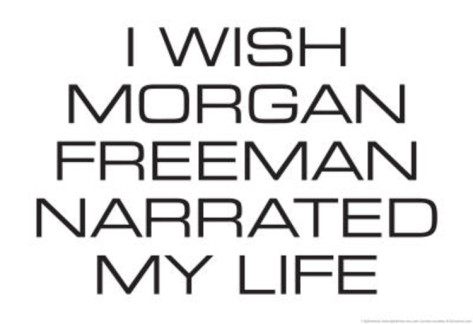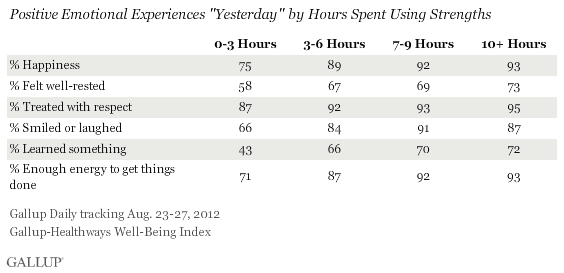What should you do with your life?
.
Wouldn’t it be so much easier if you got a letter in the mail when you were seventeen, signed by someone who had a direct pipeline to Ultimate Meaning, telling you exactly who you are and what your true destiny is? Then you could carry this letter around in your pocket, and when you got confused or distracted and suddenly melted down, you’d reach for your wallet and grab the letter and read it again and go, “Oh, right.”
That’s from Po Bronson’s book What Should I Do with My Life?. I think it resonates with all of us.
But here’s the best part: he knows somebody who got one of those letters.
Yeah, seriously.
Choeaor Dondup was a 17 year old guy with long hair. He played soccer, had a girlfriend and wasn’t sure what he wanted to do when he grew up.
Pretty normal.
Then he got a letter from the Dalai Lama saying he’s not Choeaor Dondup — he’s the reincarnation of a great spiritual leader and he must fulfill his destiny.
For real.
Via What Should I Do with My Life?:
Imagine! You’re not a dumb, lost, inexperienced seventeen-year-old! We actually have a spot picked out for you! And not just any spot!
WANTED: Great Spiritual Leader. No experience necessary.
Nevertheless, the letter was a bit of a shock. They wanted him to attend the Drepung monastery in northern India. All (he) could think about was, “Am I going to have to cut my hair?” “Am I going to have to become a monk? Give up sex?” You think it would be easy if your destiny were offered on a silver platter. But (he) went around for a few days openly expressing his angst and annoying his friends by debating whether this was the right thing to do. The social pressure was so great that eventually he shut up, gave in, and went off to the monastery, keeping his doubts to himself. It took four years for the doubts to evaporate. But it’s never been easy.
Whether you believe in Buddhism or reincarnation aside, if you’re struggling with what you feel you were meant to do, getting so direct an answer sounds like a huge relief.
But this isn’t going to happen to you. Or me.
And the irony is, if it did, you’d probably feel so trapped by such a written-in-stone destiny that you’d sing that song of longing that’s in the beginning of every Disney animated film and wish for freedom.
So, for better or for worse, if no letter with the big answer is coming, how do you resolve the question “What should you do with your life?”
1) Realize you weren’t “born” to do anything
Reincarnated spiritual whatevers aside, most people aren’t born to do anything.
Once we’ve found something we’re good at, we tell ourselves we were born for it because research shows stories like that retroactively give a powerful feeling of meaning.
After the fact, that’s very powerful — but beforehand it’s a huge obstruction to actually finding what you’re going to do because it now has this epic, earthshaking seriousness to it with expectations that look like the trailer to a summer movie blockbuster. It’s paralyzing.
Thinking about what you were “born to do” gets in the way of actually learning and developing skills because life seems more about thinking and less about doing.
You shouldn’t worry about natural talent. Yeah, if you’re 5’4″ you won’t be in the NBA anytime soon but that’s an edge case. You can’t do anything about it.
How often does natural talent control really what you can achieve in everyday life?
In ~95% of cases, it doesn’t.
Via Mindset: The New Psychology of Success:
“After forty years of intensive research on school learning in the United States as well as abroad, my major conclusion is: What any person in the world can learn, almost all persons can learn, if provided with the appropriate prior and current conditions of learning.” He’s not counting the 2 to 3 percent of children who have severe impairments, and he’s not counting the top 1 to 2 percent of children at the other extreme… He is counting everybody else.
2) Happiness and meaningful are not always the same thing
Some people want a job that makes them happy. Others want something easy. Some want as much money as possible.
All of these are often very shallow perspectives. Yes, even happy can be shallow. Why?
It doesn’t consider meaning. Research shows happy and meaningful are not the same thing:
Whereas happiness was focused on feeling good in the present, meaningfulness integrated past, present, and future, and it sometimes meant feeling bad. Past misfortunes reduce present happiness, but they are linked to higher meaningfulness — perhaps because people cope with them by finding meaning.
Think about the things people value most when looking back on life: children, achievements, marriage, education…
They’re not breezy afternoons on yachts with servants. These all have a high pain-in-the-ass component.
Anything meaningful is a challenge. Looking back we love challenges and looking forward we usually say we want the easiest route possible. That doesn’t make much sense.
Duke professor Dan Ariely, bestselling author of Predictably Irrational: The Hidden Forces That Shape Our Decisions, breaks it down:
So a little discomfort (and sometimes a lot) can be a good thing. Does that mean we don’t have to like what we do? Huh?
3) Don’t do something you hate
Cornell researcher Karl Pillemer interviewed 1000+ people over age 70 for his book “30 Lessons for Living: Tried and True Advice from the Wisest Americans.” He asked them what life lessons they learned.
What was the single most unanimous piece of advice?
Do not stay in a job you dislike.
And if that’s not strong enough, in the Harvard Business Review Daniel Gulati broke down the top career regrets people have. What were the top two?
1. I wish I hadn’t taken the job for the money.
2. I wish I had quit earlier
So you don’t need to be happy all the time but you shouldn’t be miserable and struggle is good but… Life can be confusing.
So what should you do?
4) Do what you’re good at
Doing what you’re good at is the key to happiness:
Americans also gain a boost in positive emotions the more they use their strengths. The more hours per day adults believe they use their strengths, the more likely they are to report having ample energy, feeling well-rested, being happy, smiling or laughing a lot, learning something interesting, and being treated with respect.

Using your strengths daily can make you significantly happier for months.
When 577 volunteers were encouraged to pick one of their signature strengths and use it in a new way each day for a week, they became significantly happier and less depressed than control groups. And these benefits lasted: Even after the experiment was over, their levels of happiness remained heightened a full month later. Studies have shown that the more you use your signature strengths in daily life, the happier you become.
A job that lets you use your talents makes you consistently happier at the office:
The more signature strengths were applied at the workplace, the higher the positive experiences at work. This study showed that character strengths matter in vocational environments irrespective of their content. Strengths-congruent activities at the workplace are important for positive experiences at work like job satisfaction and experiencing pleasure, engagement, and meaning fostered by one’s job.
I can already hear the whines: “But I’m not good at anything.”
This is a major problem in an era where both work and play consists primarily of staring passively at screens.
But don’t let this take you back to the attitude of “born to do” — anyone who is good at anything, got good at it.
So you need to go become good at something.
Cal Newport, author of So Good They Can’t Ignore You: Why Skills Trump Passion in the Quest for Work You Love, says it best:
My advice is to abandon the passion mindset which asks “What does this job offer me? Am I happy with this job? Is it giving me everything I want?” Shift from that mindset to…“What am I offering the world? How valuable am I? Am I really not that valuable? If I’m not that valuable, then I shouldn’t expect things in my working life. How can I get better?”
So what’s next?
This is an ongoing experiment for me. I’m looking for answers, a method, a path.
And I’d like for you to join me as we figure this out.
Join 45K+ readers. Get a free weekly update via email here.
Related posts:
What 10 things should you do every day to improve your life?
What do people regret the most before they die?
What five things can make sure you never stop growing and learning?




